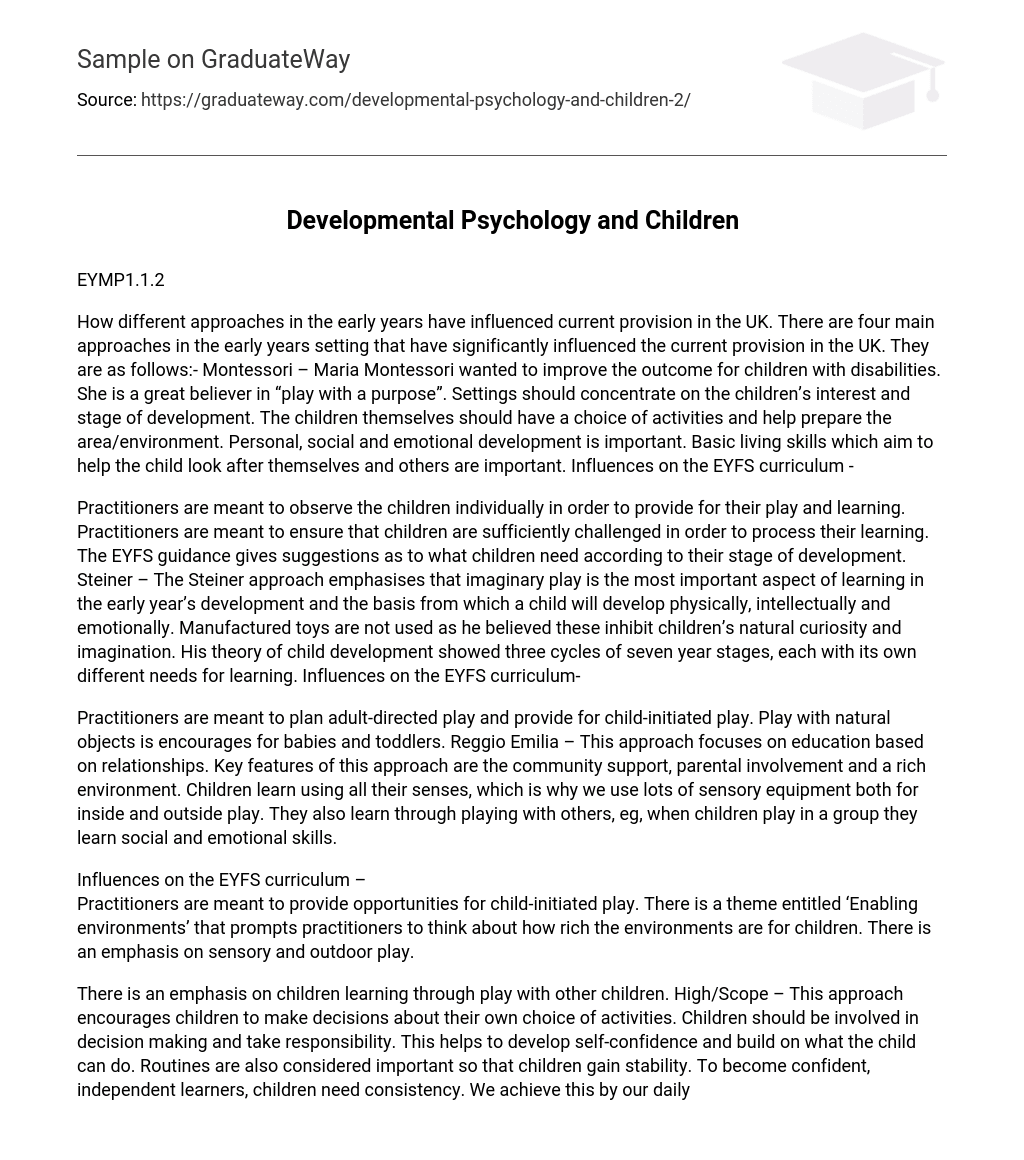EYMP1.1.2
How different approaches in the early years have influenced current provision in the UK. There are four main approaches in the early years setting that have significantly influenced the current provision in the UK. They are as follows:- Montessori – Maria Montessori wanted to improve the outcome for children with disabilities. She is a great believer in “play with a purpose”. Settings should concentrate on the children’s interest and stage of development. The children themselves should have a choice of activities and help prepare the area/environment. Personal, social and emotional development is important. Basic living skills which aim to help the child look after themselves and others are important. Influences on the EYFS curriculum –
Practitioners are meant to observe the children individually in order to provide for their play and learning. Practitioners are meant to ensure that children are sufficiently challenged in order to process their learning. The EYFS guidance gives suggestions as to what children need according to their stage of development. Steiner – The Steiner approach emphasises that imaginary play is the most important aspect of learning in the early year’s development and the basis from which a child will develop physically, intellectually and emotionally. Manufactured toys are not used as he believed these inhibit children’s natural curiosity and imagination. His theory of child development showed three cycles of seven year stages, each with its own different needs for learning. Influences on the EYFS curriculum-
Practitioners are meant to plan adult-directed play and provide for child-initiated play. Play with natural objects is encourages for babies and toddlers. Reggio Emilia – This approach focuses on education based on relationships. Key features of this approach are the community support, parental involvement and a rich environment. Children learn using all their senses, which is why we use lots of sensory equipment both for inside and outside play. They also learn through playing with others, eg, when children play in a group they learn social and emotional skills.
Influences on the EYFS curriculum –
Practitioners are meant to provide opportunities for child-initiated play. There is a theme entitled ‘Enabling environments’ that prompts practitioners to think about how rich the environments are for children. There is an emphasis on sensory and outdoor play.
There is an emphasis on children learning through play with other children. High/Scope – This approach encourages children to make decisions about their own choice of activities. Children should be involved in decision making and take responsibility. This helps to develop self-confidence and build on what the child can do. Routines are also considered important so that children gain stability. To become confident, independent learners, children need consistency. We achieve this by our daily routine, the organisation of the learning environment and in the ways adults interact with children. The Highscope approach encourages active and independent learning by involving children in the planning, doing and reviewing of activities. Plan: in a small group with an adult, children discuss which activities they intend to do. Do: children participate in the activities of their choice. Review: at the end of session the group come together again to reflect back on the session’s activities. Children are considered to be active learners and so play is used as the model for learning. Influences on EYFS curriculum-
Practitioners are meant to provide opportunities for child-initiated play. Practitioners are encouraged to talk to children about their learning.





